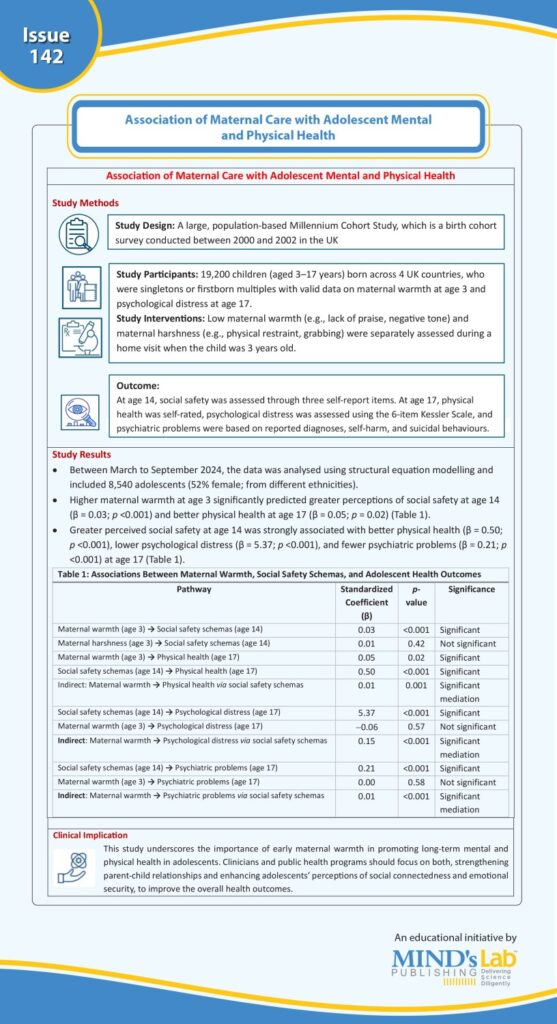
Understanding the long-term impact of parental warmth is essential for promoting better population health. Studies have shown that higher levels of maternal warmth in early childhood are associated with reduced risk of anxiety, depression, and physical health issues, while harsh parenting increases these risks. However, the underlying mechanisms are not fully understood.
According to Social Safety Theory, humans are biologically driven to form secure social bonds that support survival and well-being. In contrast, experiences of social threat—such as exclusion or isolation—can trigger immune responses like inflammation, which are linked to both physical and mental health problems. One potential pathway involves the development of social safety schemas—core beliefs that influence the behavior, expectations, and overall health. While maternal warmth has been associated with greater perceived belonging, no longitudinal studies have tested whether social safety schemas mediate its effect on adolescent health—an important gap for designing targeted interventions.
A study by Alley et al., published in the journal “JAMA Psychiatry”, aimed to investigate how maternal warmth at age 3 influences adolescents’ perceptions of social safety at age 14 and health outcomes at age 17. Using data from 8,540 participants in the UK Millennium Cohort Study, researchers assessed maternal warmth and harshness during home visits and tracked the outcomes using validated scales. Higher maternal warmth (but not harshness) predicted greater social safety (β = 0.03; p <0.001) and better physical health (β = 0.05; p = 0.02) in adolescence. Perceived social safety at age 14 strongly predicted physical health, psychological distress, and psychiatric issues at age 17, mediating 20%–100% of the impact of maternal warmth. The study concluded that early maternal warmth improves adolescent health by fostering a greater sense of social safety, highlighting the importance of caring and affectionate parenting in early childhood to create emotional security and better mental well-being in adolescence. This study highlights the need for public health efforts to improve parent-child relationships and adolescents’ perception of social safety to promote better physical and mental health (See Graphic).

(Source: Alley J, Tsomokos DI, Mengelkoch S, Slavich GM. Childhood maternal warmth, social safety schemas, and adolescent mental and physical health. JAMA psychiatry. 2025. Doi:10.1001/jamapsychiatry.2025.0815.)
